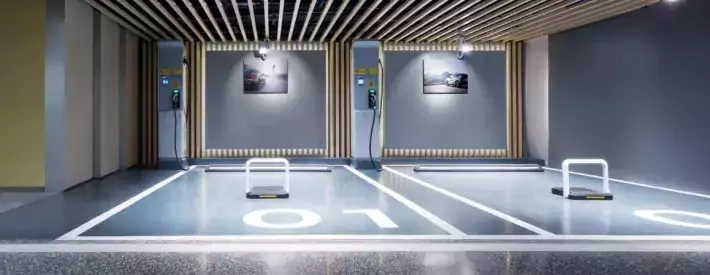Reporting on the transformation of automotive

The rapid evolution of the automotive industry, driven by technological advancements and environmental imperatives, is vividly captured in two key reports: The British Vehicle Rental and Leasing Association's (BVRLA) 2023 Road to Zero Report Card and the IMI Advanced Driver Assistance Systems Report. These documents offer a comprehensive view of the challenges and transformations facing the industry.
Reporting change
The BVRLA's report provides an in-depth analysis of the UK's transition towards electric vehicles and zero-emission vehicles. Highlighting a 40% increase in battery electric car registrations, the report reflects a significant shift towards environmentally friendly transportation. However, it also sheds light on challenges such as the disparity in fleet and retail sector adoption, the high average cost of new electric cars (over £50,000), and the imbalance in the used car market due to these trends.
Complementing the BVRLA's findings, the IMI's ADAS report delves into the increasing integration of advanced driver assistance technologies in modern vehicles. These technologies, which range from lane departure warnings to autonomous emergency braking, are crucial for the future of mobility and road safety. The report stresses the growing skills gap in the industry, forecasting a need for 106,000 ADAS-skilled technicians by 2030 to keep pace with technological advancements.
Workforce development
Both reports underscore the need for an automotive workforce capable of adapting to rapid technological changes. The transition to EVs, ZEVs, and the integration of ADAS technologies require new, highly specialised skills. The IMI's report highlights a significant skills gap, with the current number of ADAS-qualified technicians falling short of the growing number of vehicles equipped with Level 2 autonomy.
The UK automotive sector, employing over 800,000 people and contributing significantly to the economy, is showing remarkable adaptability in the face of these changes. However, the industry is not just adapting to new technologies but also to shifting consumer behaviours. Economic factors affecting vehicle ownership are reshaping how consumers engage with the automotive industry, highlighting the need for inclusive and sustainable business models.
Cultural shifts
The integration of EVs, ZEVs, and ADAS indicates a broader cultural shift within the motor industry. This shift is marked by an increased focus on environmental sustainability, technological innovation, and a commitment to continuous learning and development. As vehicles become more technologically advanced, the industry is seeing a transformation in practices and priorities, emphasising the importance of sustainability and advanced technological competence.
The IMI plays a crucial role in this evolving landscape. Through advocating for continuous professional development and setting industry standards, the IMI is helping to prepare the workforce for the complexities of modern vehicles. The organisation's efforts in facilitating training, offering certifications, and setting industry standards are critical in ensuring a workforce capable of meeting new challenges. Rising to this challenge, the IMI has launched, “There’s More To Motor” to challenge perceptions of the industry.
Future directions
The reports recommend increasing support for the transition to EVs and vans, and a review of the ZEV Mandate's market impact, highlighting the need for targeted strategies in training and development within the sector. As vehicles evolve technologically, the IMI's advocacy for skill development and standardization becomes increasingly important.
Together, the BVRLA's 2023 Road to Zero Report Card and the IMI's ADAS Report paint a comprehensive picture of an automotive sector undergoing significant transformation. These reports not only highlight the industry's capacity for innovation and adaptation but also underscore the critical need for ongoing skill development. As the IMI, our focus on representing these aspects is essential in shaping a sustainable and technologically advanced automotive future.
Check out the IMI’s ADAS Report and read the BVRLA Road to Zero Report Card
Learn more about the IMI’s There’s More to Motor campaign and help change the industry
Hayley Pells is Policy and Public Affairs Lead at the Institute of the Motor Industry




